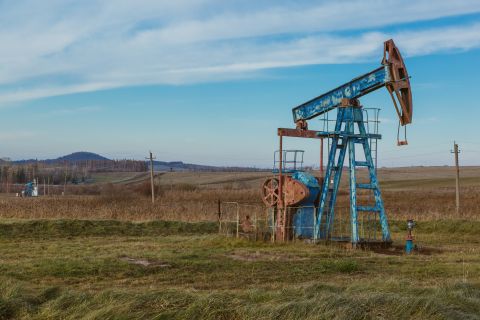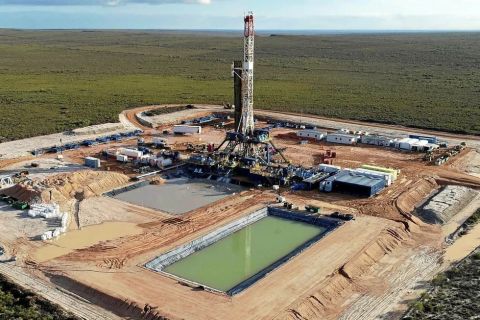With the crude market in contango and inventories building, there are only three choices left for the market. One, oil continues to be stored in progressively more expensive and creative ways. Two, refineries finish their maintenance/turnaround schedules and run at higher utilization rates. Or, three, E&P companies pull back on production temporarily.
According to the U.S. Energy Information Administration and E&P companies themselves, even though rigs are being laid down, production is expected to remain fairly steady so we can discard the third option. The refineries along the Gulf Coast and in the Midwest will run as much crude as profitable, barring unplanned shutdowns.
The government could also lift the crude export ban, but it seems unlikely that this will happen anytime soon.
The traditional tank farms in Cushing, Okla., and along the Gulf Coast have long-term contracts charging around 40 cents per barrel per month. This is known as firm capacity and contracts can last for one to five years. However, not all the space must be under long-term contracts and this is known as interruptible capacity. Short-term rates can be double those charged to customers desiring long-term firm capacity.
While there is a true physical limitation to the amount of storage available, for enough money, more interruptible capacity can always be found.
While Cushing and the Gulf Coast are the preferred lo- cations, they are not the only space available. For instance, one could move crude to a storage facility further afield, such as in Patoka, Ill., or Hardisty, Alberta. Transportation costs will reduce profits, but for steep enough contango, it could still be profitable.
Alternatively, if time or transportation remains a concern, Very Large Crude Carriers (VLCCs) could be anchored in the Gulf of Mexico to provide overflow storage. A VLCC can hold as much as 2 million barrels and be chartered for $40,000 to $80,000 per day, depending on the length of the contract. Add to that loading, unloading, fuel and insurance fees, and this is clearly an expensive option of last resort.
We will likely see a mix of these options being utilized. Companies with interruptible storage along the Gulf, in the Midwest and elsewhere will profit, along with some oil tankers. If producers decide to produce (rather than storing crude in the ground), for a convenience fee, more storage will always be available.
Maria Halmo and Emily Hsieh, CPA, are directors for Alerian, an independent provider of MLP and energy infrastructure market intelligence. Over $19 billion is directly tied to the Alerian Index Series. For more information, visit www.alerian.com/alerian-insights.
Recommended Reading
Brett: Oil M&A Outlook is Strong, Even With Bifurcation in Valuations
2024-04-18 - Valuations across major basins are experiencing a very divergent bifurcation as value rushes back toward high-quality undeveloped properties.
Marketed: BKV Chelsea 214 Well Package in Marcellus Shale
2024-04-18 - BKV Chelsea has retained EnergyNet for the sale of a 214 non-operated well package in Bradford, Lycoming, Sullivan, Susquehanna, Tioga and Wyoming counties, Pennsylvania.
Triangle Energy, JV Set to Drill in North Perth Basin
2024-04-18 - The Booth-1 prospect is planned to be the first well in the joint venture’s —Triangle Energy, Strike Energy and New Zealand Oil and Gas — upcoming drilling campaign.
Energy Systems Group, PacificWest Solutions to Merge
2024-04-17 - Energy Systems Group and PacificWest Solutions are expanding their infrastructure and energy services offerings with the merger of the two companies.
Chevron, Exxon in Dispute Over Hess Stake in Guyana Oil Block
2024-02-27 - Chevron’s $53 billion deal to buy Hess’ interests in the Stabroek Block offshore Guyana could be derailed as Exxon, CNOOC say they have first rights of refusal on the block’s interests.



